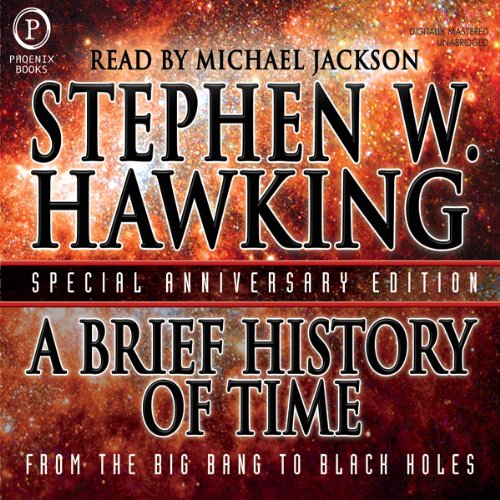
Was there a beginning of time? Could time run backwards? Is the universe infinite or does it have boundaries? These are just some of the questions considered in an internationally acclaimed masterpiece by one of the world’s greatest thinkers. It begins by reviewing the great theories of the cosmos from Newton to Einstein, before delving into the secrets which still lie at the heart of space and time, from the Big Bang to black holes, via spiral galaxies and strong theory. To this day A Brief History of Time remains a staple of the scientific canon, and its succinct and clear language continues to introduce millions to the universe and its wonders. This new edition includes updates from Stephen Hawking with his latest thoughts about the No Boundary Proposal and offers new information about dark energy, the information paradox, eternal inflation, the microwave background radiation observations, and the discovery of gravitational waves. It is published to accompany the launch of a new app, Stephen Hawking’s Pocket Universe.Stephen Hawking, one of the most brilliant theoretical physicists in history, wrote the modern classic A Brief History of Time to help nonscientists understand the questions being asked by scientists today: Where did the universe come from? How and why did it begin? Will it come to an end, and if so, how? Hawking attempts to reveal these questions (and where we’re looking for answers) using a minimum of technical jargon. Among the topics gracefully covered are gravity, black holes, the Big Bang, the nature of time, and physicists’ search for a grand unifying theory. This is deep science; these concepts are so vast (or so tiny) as to cause vertigo while reading, and one can’t help but marvel at Hawking’s ability to synthesize this difficult subject for people not used to thinking about things like alternate dimensions. The journey is certainly worth taking, for, as Hawking says, the reward of understanding the universe may be a glimpse of “the mind of God.” –Therese Littleton

A guide to the intricate aspects of matter, time and the universe If you want to know how the world and the universe works then this book is certainly the one to read. From Quantum Mechanics, providing key sight into extremely small particles and matter that makes up the universe, to relativity (general and special) which describes how space and time works is what this book is all about. What I liked most was Hawking’s writing style where he inserts both humour where required (he opens with the Turtle challenge by a member of the audience) as well as plain…
You, too, can become an accidental physicist! I read this book with my oldest son (13 almost 14 years old) and enjoyed it even more than when I first read it in the 90s. Stephen Hawking is a brilliant writer. His knowledge of his field (theoretical physics) is vast, deep, and emotional. His ability to distill complex ideas into accessable analogies rivals Richard Rhodes (who brilliantly describes Mad Cow Disease in Deadly Feasts and the atom bomb in Atomic Bomb), whom I consider to be the best in class for this ability. I had no…
Above my ability to clearly understand Frankly I’m unqualified to rate this. Thus, it gets a 5 star to avoid doing it a disservice. While considering myself fairly intelligent, it’s evident I’m not in this league. Having read and understood all of the words in this book, I just do not have a firm grasp on much of what Mr. Hawking presents. The concepts, proofs and theries are beyond my ability to comprehend. He makes a great attempt to reach the non-scientist reader. A really good job; a terrific effort. But this reader…